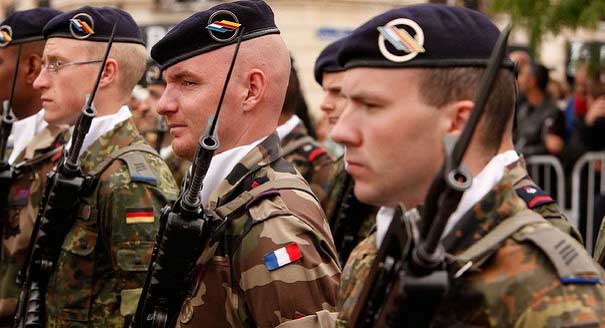Behind the question of how to “pool and share” military capabilities among Europe’s armies lurks a fundamental political question: What is the absolute minimum military force a sovereign nation still needs in Europe today? In other words, what are the bare essentials that cannot be negotiated away, even if “smart defense” works perfectly? The answer is surprisingly difficult.
Most defense analysts’ instinctive answer would probably be that you must be able to engage in credible territorial defense, otherwise you are no longer a sovereign nation. But if this answer is correct, we have a problem: a lot of countries would already have lost their sovereignty long ago, even some of the bigger ones.
There is another problem with this answer: it is a decidedly Russian one. Russian political thinking—despite its proclaimed sympathy for classical international law, which makes all states equal before the law, regardless of size and power—has traditionally defined sovereignty in a much more realpolitik way, namely a country’s ability to defend itself physically. That means that only a very small handful of countries in the world could rightfully claim to be sovereign. This attitude helps explain many of the problems and fears that linger on in the post-Soviet space to this day.
But back to the original question. If the ability to defend a territory is the criterion for what can be shared and what can’t, there is no hope that even the smartest defense cooperation can ever amount to anything. Too many assets could then be claimed by each country as indispensable national property.
A more interesting answer to the question is one that I received from Felix Seidler, a young German security analyst and PhD candidate who writes an acerbic bilingual blog. For him, all a nation really needs are some quick reaction forces and special operations units so that it can come to the rescue of its citizens during an emergency abroad.
This minimum would have to include some planning, reconnaissance, signal intelligence, and control/command capabilities, plus perhaps some medics and tactical airlift. Everything else could be put on the table in negotiations with allies over an effective (and efficient) division of labor.
This does not mean that any country should go down to this minimalistic level. It only means that it could do so without losing its sovereignty.
I like this answer for two reasons. First, it demonstrates how radically we need to think if we really want pooling and sharing to be substantial enough to compensate for dwindling defense budgets. Second, it shows us how much a country can actually afford to give away in the Europe of 2013 without putting its security at risk.
The security situation in Europe is such that the argument of territorial defense makes very little sense these days. Real sovereignty is gained through a nation’s capacity to contribute to global stability by enabling all of Europe (either through NATO or the EU) to defend its security interests.
This is where another important aspect comes into play. Defense capabilities are not only about what nations need. They are also about what they aspire to accomplish, and whether they have ambitions, obligations, and responsibilities beyond their own borders. Naturally, this is where countries like France, Britain, and Germany—plus a few others—need to aim higher than the rest. But even with these differences in mind, the real question in the defense-capabilities debate in Europe today is: What do we actually want?
So far, there is not a single European player, either among the member states or in Brussels, who has dared to offer an answer to this question. Britain and France are too focused on retaining their own traditional power status. Germany is too hemmed in by its persisting trauma. The others are either too regionally minded, too small to matter, or too tormented by the euro crisis to even think about defense. NATO, technically, has a strategic concept, but it is far from clear among members what they actually want to achieve together—as Libya and Mali have shown.
The EU institutions, with the exception of the unlistened-to European Defense Agency, don’t go near the question either. The EU’s high representative for foreign affairs and security policy, despite her title, is famously uninterested in all things military. This is a dramatic shortcoming because, without this debate, there will be no strategy and therefore no pooling and sharing. Whoever thought that pooling and sharing could be a convenient way around defining a real strategy has got it wrong.
The discussion about pooling and sharing, or smart defense, is not primarily about budgets. It is about strategy, meaning the long-term pursuit of clearly defined goals based on identified shared interests. In its radicalism, the minimalist answer to the pooling and sharing question reminds us of this.
Of course, this approach will never become policy. In the real world, there are too many other interests that politicians rightfully have to balance against security interests. But, by peeling away the layers of small-minded obfuscation, the minimalist view could help to kick-start a more strategic debate about what’s really needed in European security and defense today. In short: bold thinking based on a realistic threat analysis.






